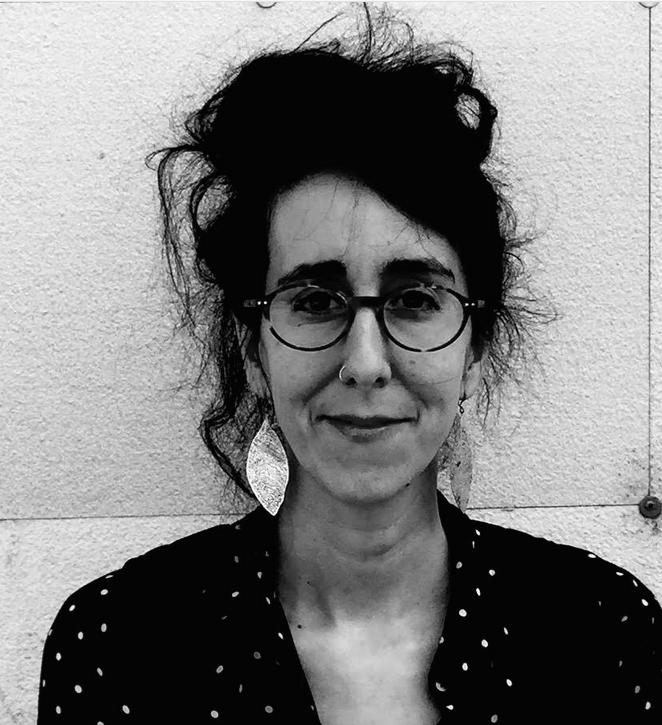| CANAL CES |
| PODCAST |
| TEMAS |
| PESSOAS |
|
Interview by: Ana Cristina Pereira and Sílvia Roque Este podcast faz parte da série de 28 podcasts realizados sobre o caso português e italiano no âmbito do projeto de investigação de 36 meses (2018-2021) (De)Othering: Desconstruindo o Risco e a Alteridade: guiões hegemónicos e contra-narrativas sobre migrantes/refugiados e “Outros internos” nas paisagens mediáticas em Portugal e na Europa, que pretendeu analisar criticamente representações mediáticas de migrantes, refugiados e “outros internos” em Portugal e na Europa, mapeando as suas interconexões com narrativas produzidas no domínio da segurança e no quadro da Guerra ao Terrorismo. O seu foco, uma análise de Portugal à luz de estudos de caso europeus profundamente afetados por ameaças terroristas (Reino Unido e França) e por fluxos migratórios/de refugiados (Itália e Alemanha), pretende investigar a construção de narrativas transnacionais de risco que permeiam a Europa independentemente da sua exposição “diferenciada”. O projeto foi financiado pelo pelo FEDER – Fundo Europeu de Desenvolvimento Regional através do COMPETE 2020 – Programa Operacional Competitividade e Internacionalização (POCI) e por fundos nacionais através da FCT – Fundação para a Ciência e a Tecnologia (Referencia Projeto: POCI-01-0145-FEDER-029997) ----- English Version This podcast is part of a series of 28 podcasts produced on the Portuguese and the Italian cases as outputs of the research undertaken in the 36 months project (2018-2021) (De)Othering: Deconstructing Risk and Otherness: hegemonic scripts and counter-narratives on migrants/refugees and ‘internal Others’ in Portuguese and European mediascapes that sets out to critically examine media representations on migrants, refugees and ‘internal Others’ in Portugal and across Europe while mapping out their interconnections with particular narratives in the field of security and within the War on Terror. Its focus – an analysis of Portugal in the light of other European cases affected by terrorist threats (United Kingdom and France) and by migrant/refugee flows (Italy and Germany) – aims to explore the construction of transnational narratives of risk pervading Europe regardless of the ‘differential’ exposure to them. The project was funded by FEDER – European Regional Development Fund through the COMPETE 2020 – Operational Programme for Competitiveness and Internationalisation (POCI), and by Portuguese funds through FCT in the framework of the project 029997 (Reference: POCI-01-0145-FEDER-029997).
During this episode, Ana Rita talked about an episode in 2015 in which the police were accused of assaulting and torturing six young people from Cova Moura, Amadora, for racial hatred. From this, she explains how the media portrays racialized people from a perspective that highlights misery and represents them like people with lack of agency and that are not seen as political subjects. In addition, racialized people are erased from public spaces, which ends up reinforcing institutional racism and white privilege. In her work, she seeks to explore the relationship between segregation, racialization and dehumanization processes in contemporary Portugal and how this works in maintaining the colonial vision of white superiority and the conditions for the persistence of situations of precariousness. pessoas
ligações
|





 Ana Rita Alves is a scholar and activist focused on producing critical academic knowledge about urban segregation and institutional racism. She is also a member of the (De)Othering's Advisory Board. She has been working with several movements engaged in the combat of police brutality and systemic violence towards racialized populations. She begins the episode arguing that the academy is a bit hermetic and self-centered and how that made her look for something else after she graduated, so she started collaborating with S.O.S Racismo, a Portuguese antiracist association. This desire came from an experience she had in the last year of her degree when she was in Brazil working with expertise from quilombola communities and came to understand that the academy, more than just writing texts and articles for the academy itself, can also add to and help the struggle.
Ana Rita Alves is a scholar and activist focused on producing critical academic knowledge about urban segregation and institutional racism. She is also a member of the (De)Othering's Advisory Board. She has been working with several movements engaged in the combat of police brutality and systemic violence towards racialized populations. She begins the episode arguing that the academy is a bit hermetic and self-centered and how that made her look for something else after she graduated, so she started collaborating with S.O.S Racismo, a Portuguese antiracist association. This desire came from an experience she had in the last year of her degree when she was in Brazil working with expertise from quilombola communities and came to understand that the academy, more than just writing texts and articles for the academy itself, can also add to and help the struggle.